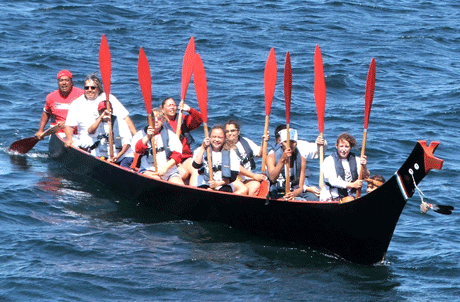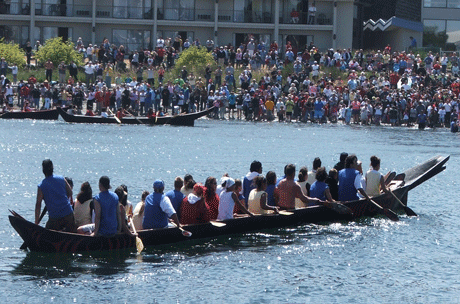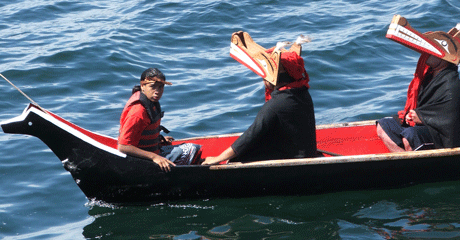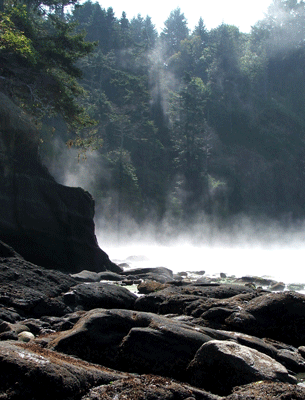
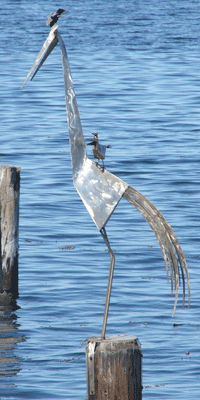
Tales of a 21st Century Gypsy
August 4, 2005 Canoe Journey.
I think I may be getting tired of travel. While Iím glad to be on my own again, I no longer want talk to people on the road. I am tired of the photos I take; trees silhouetted against dramatic clouds, fog creeping into a cove, sculptures by a bike trail or atop old poles in a harbor. I am staying in places filled with families on vacation; children circling on their bikes while their parents cook dinner over an open fire, cover the picnic table with a plastic cloth, pull out the bottles of ketchup and mustard for the hamburgers and
hotdogs, hang bathing suits and wet towels on clotheslines strung from tree to tree, and relax on folding chairs spread around the campfire. Iím not interested in talking to them about their experiences, or dealing with their reactions to a middle-aged woman full-timing in an old VW van.
I found myself in Port Angeles on the Olympic Peninsula when thousands of native people from the US and Canada descended on the town in traditional long canoes, part of a great event to honor the ancestors and build bonds among the native tribes of the region. I watched them arrive, paddling in a stiff wind across the Port Angeles harbor, pausing as they arrived to raise their paddles in a sign of respect according to one source, a sign of peace according to another, and landing on the town beach amid a crowd of natives and
